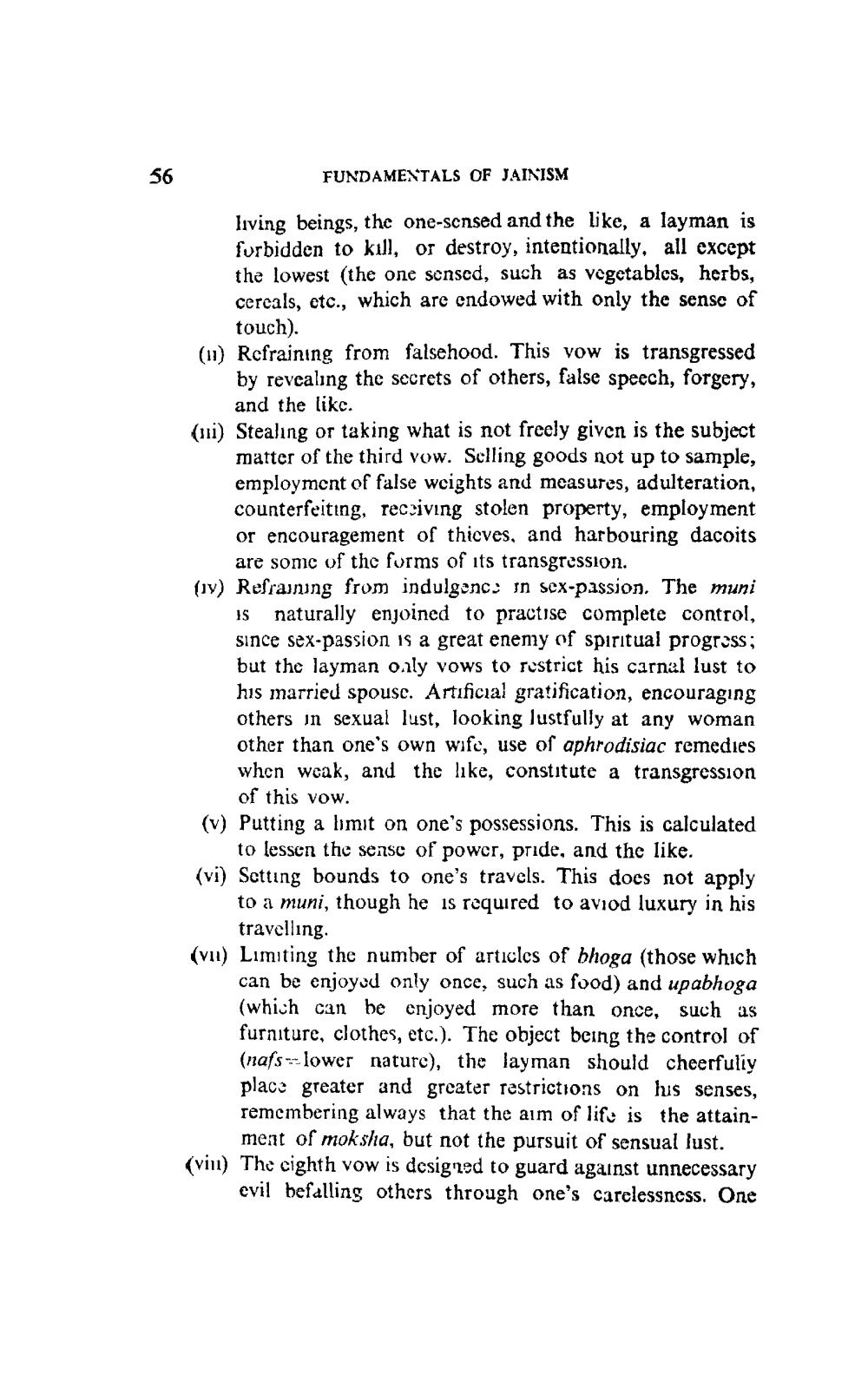________________
56
FUNDAMENTALS OF JAINISM
living beings, the one-scnsed and the like, a layman is furbidden to kul, or destroy, intentionally, all except the lowest (the one sensed, such as vegetables, herbs, cercals, etc., which are endowed with only the sense of
touch). (11) Refraining from falsehood. This vow is transgressed
by revealing the secrets of others, false speech, forgery,
and the like. (111) Stealing or taking what is not freely given is the subject
matter of the third vow. Selling goods not up to sample, employment of false weights and measures, adulteration, counterfeiting, receiving stolen property, employment or encouragement of thicves, and harbouring dacoits
are some of the forms of its transgression. () Refraining from indulgenc: in sex-passion. The muni
15 naturally enjoined to practise complete control, since sex-passion is a great enemy of spiritual progress; but the layman only vows to restrict his carnal lust to his married spousc. Artificial gratification, encouraging others in sexual lust, looking lustfully at any woman other than one's own wife, use of aphrodisiac remedies when wcak, and the like, constitute a transgression
of this vow. (v) Putting a bmit on one's possessions. This is calculated
to lessen the sense of power, pride, and the like. (vi) Setting bounds to one's travels. This does not apply
to a muni, though he is required to aviod luxury in his
travelling (vu) Limiting the number of articles of bhoga (those which
can be enjoyod only once, such as food) and upabhoga (which can be enjoyed more than once, such as furniture, clothes, etc.). The object being the control of (nafs- lower naturc), the layman should cheerfuliy place greater and greater restrictions on his senses, remembering always that the aim of life is the attain
ment of moksha, but not the pursuit of sensual lust. (vin) The cighth vow is designed to guard against unnecessary
evil befalling others through one's carelessness. One




